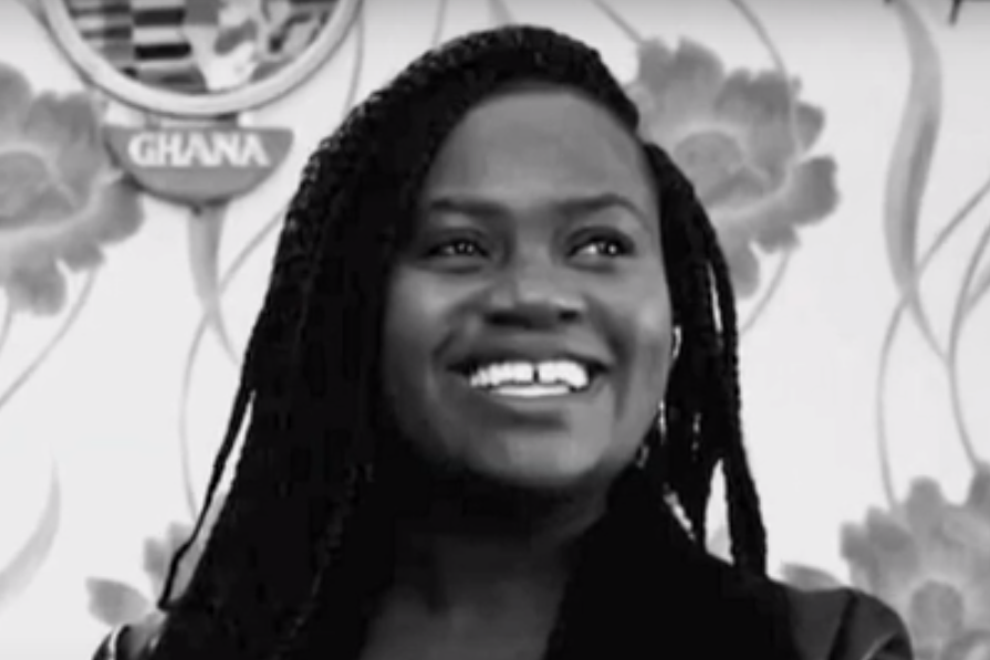The Independent's journalism is supported by our readers. When you purchase through links on our site, we may earn commission.
As a Black mother-to-be, I used my husband’s whiteness to keep me safe
Black women are four times more likely to die during pregnancy and childbirth. I was very aware that I needed to make myself ‘lesser’, not conform to harmful stereotypes – and ensure my husband did most of the talking


Your support helps us to tell the story
From reproductive rights to climate change to Big Tech, The Independent is on the ground when the story is developing. Whether it's investigating the financials of Elon Musk's pro-Trump PAC or producing our latest documentary, 'The A Word', which shines a light on the American women fighting for reproductive rights, we know how important it is to parse out the facts from the messaging.
At such a critical moment in US history, we need reporters on the ground. Your donation allows us to keep sending journalists to speak to both sides of the story.
The Independent is trusted by Americans across the entire political spectrum. And unlike many other quality news outlets, we choose not to lock Americans out of our reporting and analysis with paywalls. We believe quality journalism should be available to everyone, paid for by those who can afford it.
Your support makes all the difference.In 2015, D’Lissa Parkes – a 26-year-old Black woman – walked into Lewisham Hospital in southeast London with crippling labour pains. But medical staff told her it was too early for her to be in labour and sent her home.
When the pregnant mum returned in the early hours of the following day, she was haemorrhaging severely. Parkes eventually bled to death during a C-section – and oxygen starvation caused her baby daughter to have brain damage so severe that doctors believed she would never be able to walk or talk.
Two years later, I walked into that same hospital ready to give birth for the first time. Two weeks overdue, I was desperate to hold my baby boy. But I was also absolutely terrified of being put into the hands of midwives who might have made some assumptions about me or who might not have taken my cries for help seriously enough.
Covid-19 has given us yet more tragic examples of the deadly consequences of Black women’s health concerns not being believed, including the heartbreaking story of Mary Agyapong – a 28-year-old Black nurse – who died on 12 April last year with pneumonia and Covid-19, shortly after doctors had delivered her baby at 35 weeks. A week before she died, she had been admitted into hospital with breathing issues, but discharged later the same day.
An inquest into her death, which began last week, heard from her husband, Ernest Boateng, who said he believed that his wife had felt pressured to work, despite her fears of contracting coronavirus.
Read more:
Tonight, a Channel 4 documentary The Black Maternity Scandal: Dispatches, fronted by Rochelle Humes, will dig beneath the statistic that Black women are four times more likely to die during pregnancy and childbirth, and up to six weeks after.
When I had my son in 2017, I was already acutely aware of the fact that, as a Black mum, I was in a far more perilous position than my white friends who had given birth.
In those three days of agony – throughout the unbearable pain of labour – I was extremely sensitive to the fact that I was in the hands of the midwives and medical professionals, and I had a strange sense of having to do as they said, to not draw attention to myself by conforming to any harmful stereotypes of Black womanhood.
Armed with the knowledge that I might be at a disadvantage on the maternity ward owing to being Black, I’m ashamed to say I leveraged the fact that I had a white husband to ensure that I was treated well and that my baby and I had the best chance of surviving. I got him to insist on speaking to doctors – and to ensure they were giving me the right care.
I was very aware that I needed to make myself “lesser” and ensure my husband did most of the talking. I was very conscious of having to use my husband’s whiteness to ensure the protection of my baby and myself. Our story ended well, with a healthy baby boy. But for so many other Black women, the story is tragically different.
As a feminist and independent woman, it feels shameful to admit that I relied on my husband to advocate for me during those agonising days in labour. It is heartbreaking that, in the middle of the most precious day of our lives, I was all too aware that my Blackness was a danger to our baby and that his father’s whiteness could potentially save us.
But this is the world we live in – a world that pays attention to the voices of white men, and in which the literal cries of Black women in agony can be ignored by medical professionals, resulting in their deaths.
Black mums’ lives matter. And for us to improve the chances for Black women, we need to face up to the uncomfortable realities that potentially mean Black women’s pain is ignored. Because when Black mothers turn up at hospital, they come up against caricatures of Black women that have been ingrained in our society’s collective psyche over centuries.
Black women are portrayed as unnaturally “strong”. Our bodies have been brutalised for centuries. During the period of slavery, Black women endured lynching, public gang rape, genital mutilation and forced sterilisation, and were made to take part in experimental reproductive surgeries, including C-sections without anaesthesia, to improve medical treatment for women – which meant white women.
Physician J Marion Sims – the celebrated father of modern gynaecology – practised his surgeries, without anaesthesia, on enslaved women: Lucy, Anarcha, Betsey and others whose names we do not know.
The sexual exploitation of Black women through the centuries still has repercussions for today’s Black women, who continue to face a multitude of inequalities when it comes to sexual health and reproduction. It’s time to end the scandal.
Though my labour was not straightforward and was by far the hardest and most painful thing I have ever done, I thank God that we got through it and were soon able to meet our son.
But my heart breaks when I think of those Black women – mothers excited about meeting their little ones – who died because they were not afforded the same level of dignity as white mothers-to-be.
Chine McDonald is a writer, broadcaster and author of God Is Not A White Man: And Other Revelations (27 May, Hodder & Stoughton)
Join our commenting forum
Join thought-provoking conversations, follow other Independent readers and see their replies
Comments